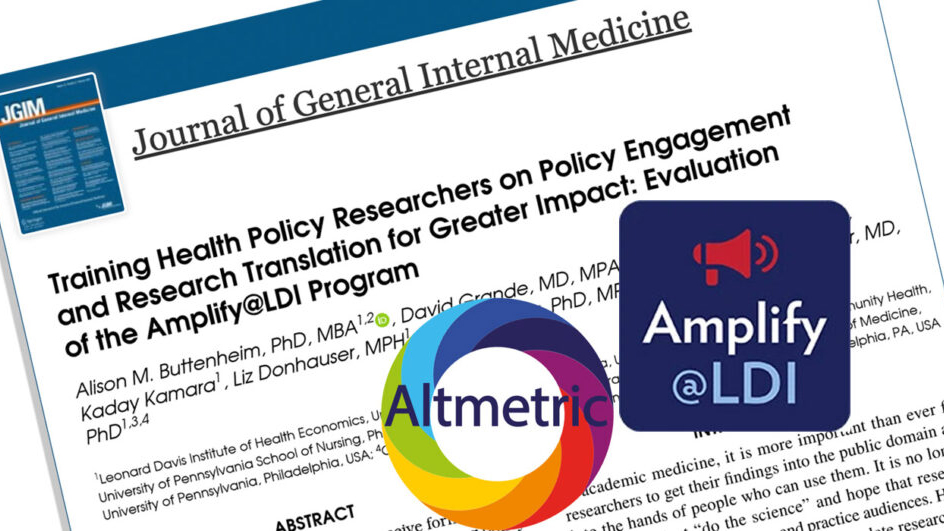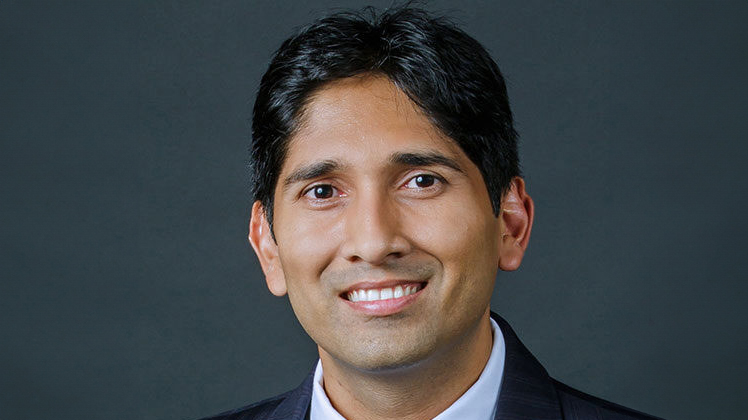
Can AI Be Licensed the Way Doctors and Nurses Are?
A Licensure Model May Offer Safer Oversight as Clinical AI Grows More Complex, a Penn LDI Doctor Says
Blog Post
This year, LDI Staff covered health policy topics from A to Z. Within our coverage, we discussed all five of LDI’s focus areas, distilling the research contributions of our network of Fellows into digestible insights for you, our readers! Thank you so much for accompanying us on our journey through the complex landscape of health policy in 2023. Out of the research updates we wrote about, you loved these the most:

How a Penn LDI Program Lifted Researchers’ Altmetric Media Scores
A study published in the Journal of General Internal Medicine documented how the Amplify@LDI program resulted in a 177% increase in media mentions for Penn researchers.

Patients With Opioid Addiction Describe the Factors That Make Them Quit Methadone
In a Q&A, Ashish Thakrar discussed his study about several barriers that keep patients from receiving long-term methadone treatment for opioid addiction.

The Best Way to Prevent HIV is Often Out of Reach for Women and Marginalized People
LDI Fellows discussed barriers to utilization of the drug for marginalized communities, and gave recommendations on how to increase access.

The Nursing Burnout Crisis Is Also Happening in Primary Care
Research by J. Margo Brooks Carthon and Jacqueline Nikpour found that across all primary care settings, better work environments were associated with lower rates of burnout and higher rates of job satisfaction.

Extreme Heat and Cold Put People with Type 2 Diabetes at Risk for Dangerous Health Conditions
Charles Leonard, Sean Hennessy et al discovered that people with diabetes experienced higher rates of hypoglycemia and sudden cardiac arrest during extreme temperatures than during moderate weather.

The Wealth and Health Gap Between Black and White Americans
A study led by Atheendar Venkataramani indicated that reparations could close racial gaps in lifespan because wealth has important consequences for health outcomes.

Long-Term Care Insurance Changes Employment Among Adult Children with Aging Parents
Norma B. Coe et al found that coverage reduced parents’ perceptions of the willingness of their adult children to care for them, and that it lowered the likelihood that children were living with their parents.

Hospital Privatization Increases Profits, at What Cost?
Research by Atul Gupta and Zachary Templeton revealed that hospital privatization increases hospital profits, but privatized hospitals serve fewer patients, particularly those on Medicaid.

Vending Machines Are Dispensing Hope and Health in Philadelphia’s Opioid Crisis
Rebecca Stewart, Rachel French, and David Mandell explored the feasibility of expanding Vending Machines for Harm Reduction (VMHR), which dispense drugs and tools to combat the opioid epidemic, in Philadelphia.

Aging at Home May Be Harder in Rural Areas
A study by Norma B. Coe and colleagues found captivating disparities in the provision of formal and family care among urban and rural adults requiring assistance with their daily activities.

A Licensure Model May Offer Safer Oversight as Clinical AI Grows More Complex, a Penn LDI Doctor Says

CF Foundation’s Landmark Drug Approvals With Vertex Inspired Patient Groups to Act Like Biotech Investors. But Only a Few Groups Have Made Big Bets, LDI Fellow Finds

Even With Lower Prices, Medicare, Medicaid, and Other Insurers Tighten Coverage for Drugs Like Mounjaro and Zepbound Using Prior Authorization and Other Tools

Cheaper Housing Could be a Way to Lower Hospitalizations Among Medicaid Patients with Heart Failure

A 2024 Study Showing How Even Small Copays Reduce PrEP Use Fueled Media, Legal, and Advocacy Efforts As Courts Weighed a Case Threatening No-Cost Preventive Care for Millions

The Growing Use of Gamification in Health Motivates People to Exercise More and Take Other Actions to Improve Their Physical Well-Being